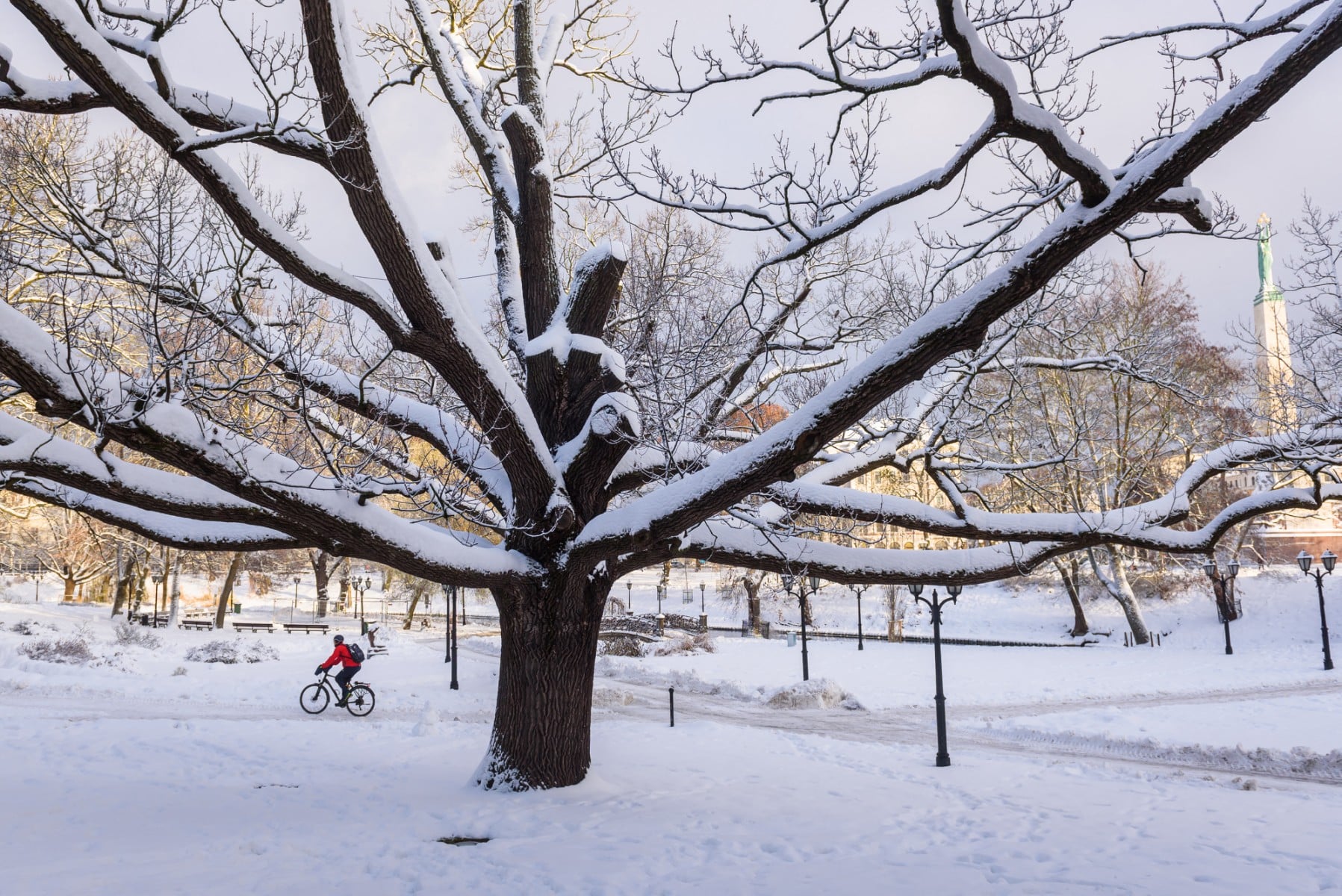White Christmas dreams dashed as Europe’s winters heat up

A man rides a bicycle as the park is snow covered on December 8, 2022 in Riga, Latvia. FILE PHOTO/Agence France-Presse
PARIS — A white Christmas may increasingly become a nostalgic memory as the Northern Hemisphere sees ever fewer snowy winter days due to climate change, with Europe warming quickest, a report warned on Tuesday.
Driven primarily by humanity’s mass burning of fossil fuels, that decline in days below freezing threatens tourism, the economy and cultures, according to Climate Central.
Tuesday’s report by the US-based research institute argues that manmade climate change had caused more than a third of the 123 countries and nearly half of the 901 cities studied to lose the equivalent of at least a week’s worth of days below freezing — zero degrees Celsius or 32 degrees Fahrenheit — over a decade.
READ: As Arctic climate warms, even Santa runs short of snow
The report’s analysis is based on the daily minimum temperatures covering the months of December to February — roughly the span of the Northern Hemisphere winter — from 2014 to 2023.
Article continues after this advertisementThose lows were then compared to a simulation of a climate without the warming effects of humanity’s widespread use of coal, oil and gas.
Article continues after this advertisementIt found that climate change had particularly increased the number of winter days above zero in Europe, the world’s fastest-warming continent.
Denmark and the Baltic states were the countries most affected.
READ: Christmas passes ‘like a typical day’ in Germany
“The snow, ice, and chilly temperatures that used to be hallmarks of the winter season are fast disappearing in many places, threatening ecosystems, economies, and cultural traditions,” said Climate Central’s vice president for science Kristina Dahl.
“Freezing winter days are crucial for sustaining snow and ice for winter recreation and sports, replenishing the snowpack that supplies freshwater sources, and maintaining plant, animal, and insect life cycles,” Dahl added.
Cold weather helps to control populations of disease-carrying insects such as mosquitoes and ticks, while shorter winters encourage the spread of pollen — and therefore allergies.
The study also warned that hotter winters may also affect agriculture, particularly the cultivation of fruits which require prolonged cool periods such as apples and peaches.